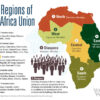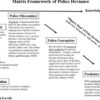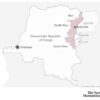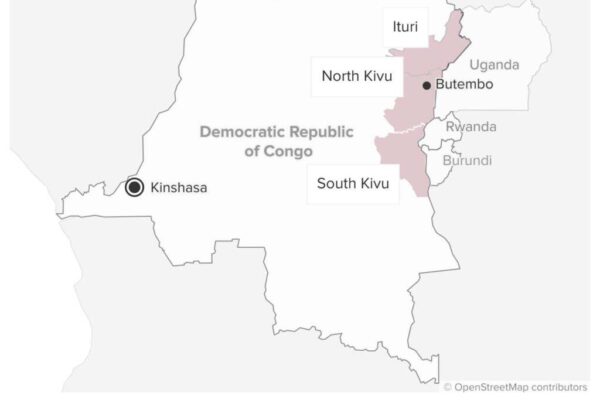Follow
Co-edited by: Emily Shaffer, U.S. Foreign Service Officer
♦ A roster is a pool of pre-assessed and endorsed candidates that can be selected immediately for a particular job opening or associated job title without having to endure another rigorous application process.
Per the UN Department of Operational Support, most recruited positions require candidates to have a roster membership.
The Central Review bodies as it relates to UN rosters –
- Central Review Board – P5 – D1 positions
- Central Review Committee – P1 – P4 & FS6 – FS7 positions
- Central Review Panels – G5 & FS2 – FS5 positions:
a. review and approve the evaluation criteria of job openings created based on individually/standard classified job descriptions;
b. review recommendations for filling a specific position or for placing candidates on the roster following a generic job opening made by departments /offices concerned to ensure that the integrity of the process was upheld, that the eligible applications and profiles of applicants were reviewed on the basis of the pre-approved evaluation criteria, and that the applicable procedures were followed.
Source: ST/AI/2010/3 of 21 April 2010 and ST/AI/2010/3/Amend 1 of 29 June 2012 on the Staff Selection System
- Executive Summary
- Background Information
- About the Survey
- Survey Findings
- What Job Seekers Had to Say
- Survey Highlights
- Key Takeaways
- Recommendations
- Survey Results

Another UN job opportunity after the closure of the UN International Criminal Tribunal for Rwanda (ICTR) continues to be a primary concern for many former ICTR colleagues following their downsizing from such a prestigious intergovernmental organization that was at the forefront of administering international justice. As a result of these unavoidable circumstances, and in an endeavor to learn more about ICTR colleagues’ job searching efforts, their roster membership experience, and how well they are managing the UN roster process, a UN Roster Membership Survey was informally created by Expatise.blog.
The main goals of this study were to:
- Gather information about how many former UN ICTR colleagues have been successful in finding another UN job post-downsizing
- Gauge how many former UN ICTR colleagues have a roster membership(s)
- Understand former colleagues’ roster membership levels and durations
- Gauge how “user-friendly” the UN roster membership process is for job seekers
Background Information
“The UN should consider former UN employees for employment, even if they are not on a UN roster.” said one survey respondent
Before embarking on this Survey, there were on-going discussions among former UN ICTR colleagues from around the world via Facebook, WhatsApp, and private chats. A few UN agencies currently employ some of these former ICTR colleagues, some are actively looking for another UN job, and a few are retirees looking to continue their service by contributing their expertise where there is a need. These discussions were about life after the Tribunal; job searching challenges faced after being downsized and the challenges of feeling isolated and professionally unfulfilled after being repatriated back to their respective home countries.
Helpful information about the roster process from UN career websites, such as https://careers.un.org/lbw/Home.aspx and https://careers.un.org/lbw/attachments/ManualfortheRecruiter.pdf is available via internet search. However, the above-mentioned UN sites did not provide details about other possible advantageous attributes that could complement a roster member’s candidature. These could include past performance evaluations, new educational achievements / additional training relating to the job profile, or the hiring manager’s professional familiarity with the candidate, personally or by recommendation.
Including the views of rostered job seekers without UN experience, caused the search to other sites such as Devex.com, Developmentaid.org, unjoblist.org, and Impactpool.org. Only one website, unjoblist.org, had the sought-after information; job seekers without UN experience sharing their UN roster membership experience.
About the Survey

Previously, there were two blog posts on the subject published – ‘International Recruitment Process, Part II – Roster Membership‘ and ‘A place of Merit in the UN System. To obtain more information about ’others’ roster membership experiences, a Google Form UN Roster Survey was shared with the UN ICTR Alumni Facebook group with over 800 members, living all around the world. The analysis for this report is from the survey results.
There were nine questions, a mix of multiple-choice, checkbox grid, short answer, and one long answer question. Some of the questions pertained to the participant’s current employment status, years of UN experience, roster membership status, and UN roster membership duration. Fifty-one UN ICTR Facebook members responded and shared their UN job search experience.
Survey Findings
Survey Question: Are you currently employed with any UN agency?
- 78.4% of former UN ICTR respondents are not currently employed with any UN agency and are active UN job seekers
- Of the 21.6% presently working for a UN agency, 56% were already in their job before the UN roster system implementation

Survey Question: If you are on a UN Roster for pre-approved candidates, what is your roster level, and what is the duration of your roster membership?
-
- 56% of survey respondents are on a UN roster(s)
- G-Level (General Service/Locally recruited positions) (2)
- FS-Level (International Field Service recruited positions) (19)
- P-Level (Professional International & Locally recruited positions) (13)
- D-level (Director/Executive recruited positions) (unknown)
Examples of roster profiles and levels include:
-
- Budget Officer, P4
- Administrative Officer, P3
- Legal Officer, P4
- Communications Officer, P5
- Procurement Assistant, FS4
- Associate Logistics Officer, P2
- Property Disposal Assistant, FS5
- Security Officer, FS3
- Administrative Assistant, FS4
- Finance Officer, P3
- 44% of survey respondents are not on a UN roster at any category or level
- Respondents duration of roster memberships ranges from One Year to Eleven Years
What Job Seekers Had to Say
“I no longer receive invitation emails from Inspira to apply for the same job title I am on the roster for or Associated Titles,” one respondent shared
78.4% of survey respondents shared concerns about the roster membership process. 47.4% of respondents no longer receive Inspira’s invitation emails. (Note: Inspira is the UN HR website that invites rostered candidates to apply for the “recruit from rostered” openings and alerts non-rostered job seekers of current vacancies.) Former ICTR colleagues said they have to look at Inspira for vacancies actively.
♦ According to At A Glance, “The rostered candidate should receive an email inviting them to apply for the same job profile or Associate Title, which has been identified as having similar functions and attributes through a classification review. It is crucial that rostered candidates sign up for alerts and actively look for openings to ensure they do not miss out on applying for a job opening.”
Source: https://careers.un.org/lbw/attachments/Inspira/At_a_Glance/RostersforApplicantsAtaGlance.pdf
“It would be nice if someone from HR or a hiring manager could shed light on the roster membership process and provide non-selected candidates with feedback. Do we need a recommendation from an insider to be successful in getting selected from our roster membership?” another respondent wrote
Surprisingly, the survey results mirror a trend of what job seekers without UN experience had to say about their UN job search challenges. At unjoblist.org, one rostered job seeker without UN experience wrote, “Respected members, is it true that we do not need a referral from a UN insider to support us to get a job? Or can be selected for a job on merit alone be achieved? I am on a roster in 4 categories, but I do not think these roster memberships shall be of any help. Regards.”
“Do you have any idea what is the makeup of an INFORMAL INTERVIEW? I have a UN roster membership, and they called and informed me that there is no need for an assessment, but I will have an informal interview. In the roster section of the At A Glance book, they say that this kind of interview is less formal than the competency-based interview. Do you have any feedback on this?” wrote another rostered job seeker
Survey Highlights

Although survey respondents live in different parts of the world and have diverse roster profiles and levels, the survey results indicate former UN ICTR colleagues have similar challenges. According to the results, 78.4% of former UN ICTR colleagues have not been able to obtain another UN job after being downsized despite some of these former colleagues having a UN roster membership. Other survey highlights include:
- 90% of former UN ICTR colleagues each have more than ten years of UN experience
- 78.4% of former UN ICTR colleagues are current UN job seekers
- Various UN agencies currently employ 21.6% of former UN ICTR colleagues
- Of the 21.6% presently working for a UN agency, 56% of them were already in their jobs before the UN roster system implementation
- 19.1% of former UN ICTR colleagues obtained their current UN job because of their roster membership
- 56% of former UN ICTR colleagues are on a UN roster(s) – G, FS, P, and D levels
- 44% of former colleagues are not on a UN roster at any category or level
Key Takeaways
“It is shocking that with over 20 years of professional experience, 15 years of UN work experience, five roster clearances, and a master’s degree level of education, I am still seeking ‘re-employment’ in an organisation that supposedly is in the forefront of transparency, human rights, and fairness!” a seasoned survey respondent shared
Overall, survey results and feedback from the UN Job List Forum demonstrate that both former ICTR employees and non-UN experienced job seekers are anxious to receive feedback from UN HR departments. Both groups do not understand the roster process and have concerns about the UN roster membership system as a supposed gateway to the next or the first UN job.
Survey results show that only 21.6% of respondents are currently working for a UN agency, while 78.4% of respondents have not been able to find another UN job after the closing of the UN ICTR. 56% of respondents currently have an active UN roster membership, but only 19.1% of respondents had been able to find another UN job with the aid of their roster membership.
It seems unfair that of the 90% of respondents with over ten years of UN experience, 78.4% are unable to find another UN job post-ICTR. It appears that somewhere along the path of pursuing another UN job there is a bottleneck, and the current UN recruitment system is not working in their favor.
In hindsight, to learn more about respondents’ job-searching experiences, additional questions could have been added to the Survey, such as:
- Have respondents without a roster membership been invited to take an assessment or participated in a competency-based interview post-ICTR?
- Have respondents ever received personal feedback from an HR representative about their application for a rostered position that was unsuccessful?
- Do respondents believe that HR departments have done enough to ensure a fair testing mechanism, such as providing reading materials for upcoming assessments? It could be challenging for a former staff member out of the system or an external candidate to adequately prepare for examinations without knowledge of updated database operations, and current UN processes, guidelines, or standard operating procedures (SOPs).
- Were respondents’ last two ePerformance evaluation ratings considered?
- Did respondents acquire additional education and/or formal training post ICTR?
Recommendations
“It is a disappointing process,” one survey respondent shared
Recommendation One: For the UNO Headquarters in New York, Nairobi, Geneva, and Vienna, in partnership with other UN agencies, to adopt the One UN HR – delivering as one recruitment mechanism. This kind of collaboration would allow all “UN agencies to work across organizational borders, sharing qualified and vetted candidates for recruitment purposes,” (Henrik Ryden). Sharing transferable profiles across agency boundaries could be more efficient and cost-effective, making this newly established One UN Human Resource System seamlessly accessible for both UN organization’s administration arm of recruitment and job-seekers. This updated mechanism could ensure rostered candidates have an opportunity to continue their UN career and contribute their expertise and UN knowledge in a new role. Also, relieve administrative burdens from HR and hiring managers, knowing newly recruited staff members could hit the ground running after a much slimmed-down onboarding process.
Recommendation Two: Reintroduce and implement Active Rostering, when the UN agency actively recruits and places rostered candidates against vacant positions. This would represent another cost-effective and efficient benefit for UN agencies.
Recommendation Three: Allow non-rostered downsized UN employees an opportunity to be short-listed for positions and invited to participate in competency-based interviews. If selected, these candidates, too, will be able to hit the ground running after an abridged onboarding process.
Recommendation Four: Recruit UN retirees. Their skills and UN knowledge could serve the UN well for emergency and short-term assignments. This would be cost-effective and efficient as these former colleagues too could hit the ground running without an onboarding process.
Recommendation Five: Assign career counselors to help downsized UN employees with their job-search efforts, assessments, and competency-based interview preparation.
Recommendation Six: Provide a ‘General Roster Mailbox’ for job-related questions and feedback about one’s roster memberships. This general roster mailbox could offer roster candidates a way to follow up on one’s application or provide feedback about one’s personnel file. For example, there could be easily fixable misinformation in someone’s personnel record that is preventing them from being selected for another UN job. Once the candidate can clarify or fix the misinformation, this could help improve their chance of being selected for a job in the future.
Recommendation Seven: All UN agencies could invest in outreach efforts to recruit qualified candidates with UN experience.
Lastly, I highly recommend all job-seekers looking for a UN job to read The Recruiter’s Manual to gain a firm understanding of the UN recruitment process. There is some good stuff in this manual!
https://careers.un.org/lbw/attachments/ManualfortheRecruiter.pdf
Survey Results:
Link to Roster Membership Survey:
https://docs.google.com/forms/d/e/1FAIpQLSfHs9dXrAjPRq8AJ1cNAvwcVIGtalvVwT1BBYtlZ2uSZF2ldw/viewform?usp=sf_link
















Thanks, Pianino for leaving a comment. Yes, I welcome differing opinions. Regards.
You are welcome to offer your opinion. Thank you.
I am genuinely thankful to the holder of this web site who has shared this fantastic paragraph
at here.
This text is worth everyone’s attention. When can I find out more?
It is unusual for me to find something on the net that is as entertaining and intriguing as what youve got here. Your page is lovely, your graphics are great, and whats more, you use source that are relevant to what you are talking about. You are certainly one in a million, good job!
I like the method that you write. Great website. Lovely understanding over listed here. Wonderful! Great Web page. I will certainly share this specific with all my friends! Thanks for your great blogs! I won’t be able to wait to confirm some those out! I love to write that type articles as if you.
I just love reading through as well as browsing your blog. Its full of data that I may use. Thanks a bunch!